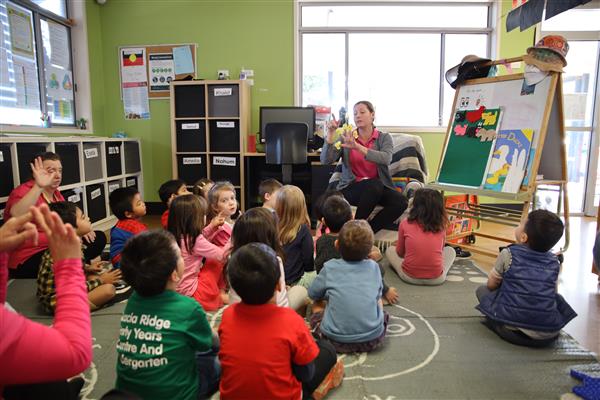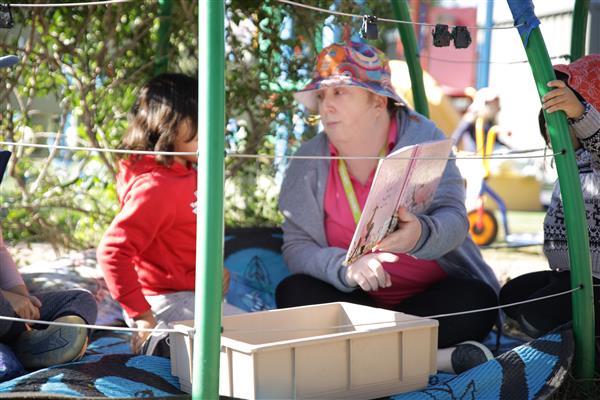Starting school is an exciting new chapter. But it can also be a challenging time for children and parents alike, particularly if a child is feeling anxious about this big change in their lives.
“It’s an important milestone for young children and their families as they transition to a more formal school environment,” says Alisha, a Senior Practitioner at The Benevolent Society’s Acacia Ridge Early Years Centre and Kindergarten in Queensland.
Early Childhood teacher, Elvia, adds: “It’s a big change and adjustment for the child and the family. It can spark many emotions - excitement, apprehension, enthusiasm and even sadness. There is a lot for them to learn and take in everyone settles into the new routine and environment.”
But starting school needn’t be overwhelming. Alisha and Elvia have some practical advice to assist parents as they prepare their children for this significant milestone to ensure school is a positive experience.
Preparation is key
Being well-prepared can make the transition smoother. “You can make the school a familiar place by attending orientation programs, visiting the school or driving or walking by the school a few times,” Alisha says. “This will help your child to acclimatise to the classroom, teacher, toilets, office and canteen, as well as getting them used to the number of children, playground and the movement of children around the school grounds.”
Elvia adds: “Where possible, introduce your child to other kids in the neighbourhood who will also be attending the same school so they know some familiar faces on the first day.”

Early Childhood teacher, Elvia
Set up routines
Establishing a good daily routine is key to a stress-fee school run.
“Make sure your child gets to bed early; adequate sleep is essential for concentration,” Elvia says. “School can be exhausting, so healthy sleep habits around when your child goes to bed and wake up are really important.”
Eating a nutritious breakfast is also essential. “Get your child involved in packing lunches and in making food choices,” Alisha says. “Ensure containers and wrappers are easy to open and manage. Make sure you provide a water bottle each day and that everything is labelled with your child’s name.”

Senior Practitioner, Alisha.
Build confidence & independence
Parents can help boost their child’s confidence and strengthen their independence in a number of ways. “Find answers to questions or concerns your child has about school,” Elvia says. “Teach them how to ask questions and who to ask if they need help.”
Developing a child’s self-sufficiency will make their daily life at school much easier. “Encourage your child to pack and carry their own bag; teach them to put their own shoes on and how to blow their nose and wash their hands,” Alisha says. “Developing these skills will go a long way towards building independence.”
Family fun
Parents can also bolster a child’s progress by doing fun family activities together which foster language, literacy and mathematical skills.
“Reading aloud, singing songs and nursery rhymes really help to develop language,” Elvia says. “Sport, board games, family excursions and messy plan fun can help with problem solving and social skills.”
Lastly, remember to have fun! “It’s important to focus on all the fun and positive things about starting school,” Alisha says. “And remember to check in regularly with your child’s teacher about how they are going and checking school bags for notes and information each day.”
State Governments also have handy resources for parents including New South Wales and Queensland.
For more information about our Early Childhood Years programs and services, click here or call 1800 236 762.